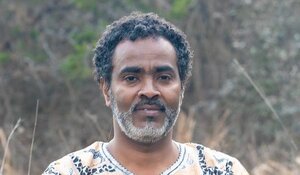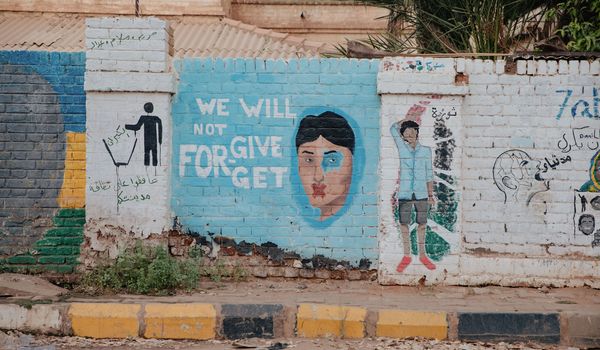(17 November 2025) The tragedy of El-Fasher, the Sudanese army’s last stronghold in Darfur, was not unforeseen; it was inevitable. From the moment the Rapid Support Forces (RSF) laid siege to the city in May 2024, it was clear its fall would be accompanied by mass atrocities, echoing the horrors of El-Geneina in 2023 and the Janjaweed's crimes two decades prior. For over sixteen months, a UN Security Council resolution existed, and humanitarian organizations sounded the alarm. Yet, no decisive action followed.
Sudan’s descent into this catastrophe began long before El-Fasher. After three decades of Omar Al-Bashir’s authoritarian rule, a popular uprising in 2019 overthrew him and ushered in hopes for democracy. But the uneasy partnership between the military, the paramilitary RSF, and civilians collapsed in 2021 when the generals staged a coup. Two years later, in April 2023, the alliance imploded into a full-scale war between the two armed factions.
A Foreseen Massacre

During the siege, the RSF burned villages, executed displaced people in Zamzam Camp, and bombed hospitals and mosques. They destroyed water facilities, starved civilians, and killed those trying to escape, often filming their crimes as spectacles of terror. These were actions of a militia long accustomed to impunity and propaganda.
RSF leaders could not have been clearer, having been repeatedly recorded declaring that those who remain in towns after their advance are “not civilians,” and instructing their fighters that “no prisoners should be taken.”
And this they did. After capturing El-Fasher, the RSF launched a campaign of mass killings, going house to house executing civilians, including patients and medical staff at a hospital. Satellite and UN reports confirm the burning of neighborhoods and the disposal of bodies in mass graves. Civilians who tried to flee were hunted down, while thousands were trapped without food or water as the city was systematically emptied and destroyed.
The world is watching in real time. The evidence of massacres, satellite imagery, and RSF videos is overwhelming, yet the international response remains paralyzed.
The Known Enabler: Fueling Atrocities from Abu Dhabi and Beyond
The international community, particularly the United States and the United Kingdom, along with the United Nations, knew this was coming. Frequent reports from intelligence agencies, diplomats, and NGOs warned of the impending crisis. They also knew the principal external enabler: the United Arab Emirates (UAE), which finances the massacres through Sudanese gold smuggled to Dubai, fuels the conflict with weapons routed via Chad, Libya, and Somalia, and provides cover through sustained political and PR campaigns.
Yet the UAE has faced no public consequences, only vague references to unnamed “regional actors” and recycled calls for dialogue. This is complicity by design. Washington and London have effectively outsourced Sudan policy to Abu Dhabi and in doing so have become enablers themselves. Western governments that continue arms sales, intelligence sharing, and diplomatic protection for the UAE are not bystanders to El-Fasher; they are participants in the system that made it possible.
The Morality of Failure
The international community's inaction in the months leading up to the RSF’s takeover of El-Fasher was not merely a political failure; it was a moral collapse of the international order. When the Sudanese Armed Forces signaled acceptance of a ceasefire in June 2025, the RSF refused to reciprocate, confident that its arms pipelines from the UAE would remain open and that the consequence would be nothing more than another communiqué.
The RSF pushed for a Libya-style partition via a parallel authority (Tasees), while the international community paid lip service to Sudan’s unity and sovereignty.
Western capitals continued to equate the army and militia as interchangeable “conflict parties,” a false symmetry that ignores the RSF’s systemic atrocities and the verdict of civilians who flee their advance. This does not absolve the army of its crimes, but it identifies a difference of kind that matters for any strategy that claims to protect people.
The Diplomatic Charade
As the humanitarian situation deteriorated, a Quad roadmap (U.S., Saudi Arabia, UAE, Egypt) was released. On paper, it offers a humanitarian truce and a transition. In reality, it follows the failed logic of placing the UAE, a direct party to the war and the main sponsor of the RSF, at the center of mediation. The UAE’s seat is not “pragmatism”; it is a structural conflict of interest that launders a belligerent’s role.
The roadmap prescribes timelines without tools and a transition not controlled by the warring parties that nonetheless depends on truces they control. More critically, it ignores lessons from past ceasefire efforts, which failed because they lacked enforcement, monitoring, and consequences for violations.
This pattern, defined by power-sharing with perpetrators and sidelining civilians, is how three decades of Sudan peacebuilding delivered truces without justice, peace agreements without peace, and transitions without democracy.
The Choice of Complicity
At bottom, the international community lacks the moral standing to compel peace because it has refused accountability. The UAE is considered too valuable a partner, whether for business interests or its alliance with Israel, to risk alienating. Western officials often soften their rare mentions of the UAE by listing other actors such as Egypt, Türkiye and Iran, though none match Abu Dhabi’s scale of involvement. The United States and the United Kingdom, by continuing to shield the UAE diplomatically and avoid sanctions, have helped create the permissive environment that made El-Fasher possible.
Their selective silence and protection of a war sponsor make them complicit in the atrocities they claim to condemn.
Even the international community’s repeated appeals to “civilian inclusion” lack credibility, as the same mediators handpick which “civilians” are allowed to participate, recycling elite figures while excluding the resistance committees and grassroots networks that have kept people alive. The result is a performance of empathy that leaves the political economy of war untouched.
A Narrow Path: From Complicity to Action
There is, nonetheless, a narrow but real path. It begins not with a new process but with doing the few things the international system can do.
- Fund the people keeping Sudan alive. Shift resources directly to Sudanese civilian networks, such as resistance committees, emergency response rooms, and medical and food lifelines that operate outside both armed camps, rather than routing everything through intermediaries.
- Name the parties to the war. Treat the UAE as a belligerent and hold Western governments accountable for enabling its role through silence and selective diplomacy. This includes sanctions on individuals, entities, and routes implicated in arms and logistics to the RSF, and scrutiny of Dubai gold smuggled from Sudan.
- Establish real accountability mechanisms. Any future agreements must include independent monitoring, enforcement measures, and clear consequences for violations to ensure that civilian protection becomes a reality, not a promise.
As for the humanitarian truce proposed by the Quad, no truce can be credible while the RSF continues to rearm. Any ceasefire must include clear bans and enforceable monitoring, or it will only allow regrouping.The international community’s role is not to stage another empty process but to do only two things within its real power: pressure the UAE to stop arming the RSF and fund the humanitarian aid that keeps people alive.
How People Can Make a Difference
Governments have failed, but people are not powerless. Citizens, activists, and diaspora communities can act by pressuring representatives to name and sanction the UAE and hold Western governments accountable. They can expose the gold routes and financial networks that fund atrocities, support Sudanese grassroots groups directly, build solidarity across causes, from Sudan to Palestine to Congo, and speak out against disinformation and silence. Justice will not come from diplomacy but from public conscience and collective action. Silence enables complicity; ordinary people can break it.

